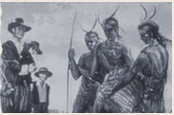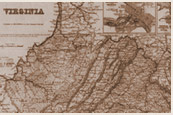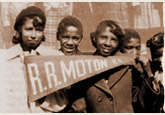Interview with Honorable Unita Blackwell, 1977
University of Southern Mississippi: Civil Rights in Mississippi Digital Archive
Description: Unita Blackwell is an African American Mississippian whose parents were sharecroppers. She became a field worker for the Student Nonviolent Coordinating Committee (SNCC) in 1964 in order to participate in efforts to register black voters in her home state. She also served as a delegate of the Mississippi Freedom Democratic Party that same year. THe MFDP was a group that offered themselves as an alternative to the all-white, segregated Democratic Party of Mississippi. Since 1977, she has served as mayor of Mayersville in Issaquena County, Mississippi. This transcript of a 1977 interview with Ms. Blackwell offers students a fascinating "you were there" look at mid-twentieth century segregated Mississippi, as well as personal reminiscences of the famous Mississippi Freedom Summer. There is also plenty of material to spark student discussion about what would motivate a person to risk her life for a particular cause.
Teaching Tips:
"Do Now" Suggestion
- As a prereading activity, the students can look at the introductory biography and the summary of the topics discussed on the website (before the transcript of the interview) and record their expectations of what they think Unita Blackwell will say in the interview. They can write their predictions in a Prediction Organizer (after reading the interview, they can complete the organizer).
- Students should come away from this interview with a better understanding of the Civil Rights Movement from the perspective of a member of a grass roots organization. This is a long interview and should probably be broken up for students with a focus on certain topics, including Blackwell joining SNCC, Blackwell's attempts to register to vote in Issaquena County, Blackwell's involvement in the Mississippi Freedom Democratic Party, and the Imprisonment of Voting Rights Demonstrators on the Mississippi Fairgrounds. The students can work in assigned groups to create a poster, which addresses their topic. The poster can include a narrative component (in the form of a letter, newspaper article, poem, etc.) describing the topic and a visual component (cartoon, photographs from the Internet, illustrations, etc.). When the posters are complete, the groups can present their work so that the class has a comprehensive idea of the many forms the grassroots Civil Rights Movement took, and the risks involved for the participants.



